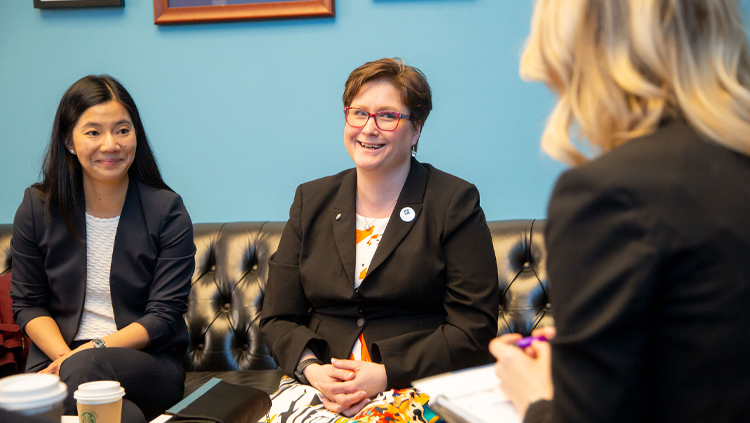
It should be clear to us by now that science is done by actual people whose intersectional identities, and the social challenges and trauma that come with them, don’t disappear when they enter the lab. Regardless of where they are, Black scholars and those belonging to other marginalized groups face overt, implicit, and systemic racism on a daily basis. Particularly in the last few years, US-based international researchers have regularly faced xenophobic and anti-immigrant policies from their host nation.
This year, international students and postdocs experienced damaging threats to their presence, security, and peace of mind as a result of new anti-immigrant policies targeting their visa programs. Many scientists promptly took to social media to respond to these actions.
Can advocacy on social media be effective?
Absolutely. While there are many ways to be an effective advocate, social media is certainly at the top of the list. Some of the reasons why Twitter can be a useful tool are:
- We’re in a time where most of our interactions with each other and with our elected leaders is online. Their staffers certainly read posts their bosses are tagged in, even if they don’t respond to the post themselves.
- Not only is Twitter the most popular medium where politics and social issues are discussed, but there is a large presence of academics and scientists (particularly neuroscientists) on the social media site. So, your audience, and potential allies, are likely also on Twitter regardless of what you’re advocating for.
- There is also no paywall for others to access information you post on social media. There is also no editorial process on Twitter, except that which is in your head, which helps you get your message out sooner and more broadly. Of course, this can also be a disadvantage (see hot takes).
What role did I play?
I played a part in a largely successful national campaign to push back against these policies. As an advocate, my goals were to first raise awareness about the potential harm of these new rules and present arguments revealing them to be grounded in fear and xenophobia rather than facts. I used social media (Twitter) and the press as tools in my advocacy strategy.
What was my strategy?
- Know the facts. When reports of a plan in the works to issue major restrictions on international scholars under the pretense of protecting American jobs and supporting economic recovery, I began to research what data was available from studies on the impact of foreign workers on labor supply and the economy.
- Condense the message. Once I had all the data, I synthesized my arguments into short digestible messages that can be posted as multiple tweets in a thread. Tweets with some form of media (image or video) typically get more engagement. In other cases I condensed my argument into bullet points in just one tweet.
- Amplify other voices. When advocating for any social issue, it’s important to amplify the marginalized voices of those whose lives are directly impacted and if you yourself are impacted and up to it, share your personal perspective as well. So, throughout my posting, I would amplify tweets posted by my colleagues where they share their stories to help share their lived experience.
- Write an Op-Ed. To broaden the reach of my message, I chose to present the facts and lay out the argument against immigration restrictions by writing an opinion piece. I needed to write quickly (for timeliness) and concisely (newspapers usually have word limits). After writing the article, I developed a pitch and presented it to two papers, ultimately publishing it in the Washington Post.
- Be a resource. When the Trump administration moved to push out international students whose universities planned to offer online-only classes in the fall, I noticed that a small number of other institutions were taking legal action as well, so I decided to highlight them in a tweet. As more universities announced that they were taking legal action, I would add them to the thread to highlight that. This thread (which received over 2 million engagements) became a resource for journalists as well as students, faculty, and alumni who used it to advocate locally with for their institutions to take action. This encouraged other institutions to follow suit, or at least do so sooner, until hundreds of universities joined the effort. Ultimately, the government rescinded this new policy less than two weeks after it was announced.
“Scientists shouldn’t get political” is a common refrain many of us have heard, perhaps even believe. The reality is that the politics of society directly impacts the funding, the work, and the personal lives of scientists. We must speak up for our colleagues where we can. Protecting and empowering these scholars isn’t only a moral imperative for science (and academia), but also a necessary one for the health and vitality of the entire enterprise.








